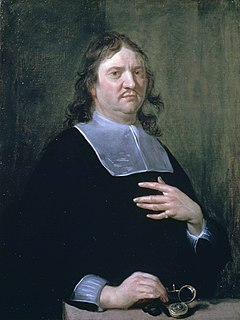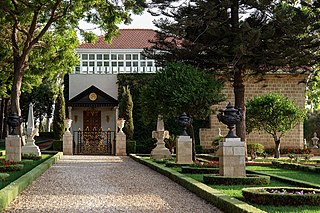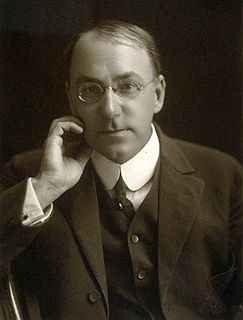A Quote by Plutarch
Pittacus said, "Every one of you hath his particular plague, and my wife is mine; and he is very happy who hath this only".
Related Quotes
Let us look upon a crucified Christ, the remedy of all our miseries. His cross hath procured a crown, his passion hath expiated our transgression. His death hath disarmed the law, his blood hath washed a believer's soul. This death is the destruction of our enemies, the spring of our happiness, and the eternal testimony of divine love.
The King saw them with no common satisfaction, expressing his desire in no particular to have yt Stellar fish engraven and printed. We wish very much, Sir, yt you could procure for us a particular description of yesd Fish, viz. whether it be common there; what is observable in it when alive; what colour it then hath; what kind of motion in the water; what use it maketh of all that curious workmanship, wch Nature hath adorn'd it with?
Blessed the man that hath visited `Akká, and blessed he that hath visited the visitor of `Akká. Blessed the one that hath drunk from the Spring of the Cow and washed in its waters, for the black-eyed damsels quaff the camphor in Paradise, which hath come from the Spring of the Cow, and from the Spring of Salvan (Siloam), and the Well of Zamzam. Well is it with him that hath drunk from these springs, and washed in their waters, for God hath forbidden the fire of hell to touch him and his body on the Day of Resurrection.
Why, friends, you go to do you know not what: Wherein hath Caesar thus deserved your loves? Alas, you know not: I must tell you then: You have forgot the will I told you of. . . . . Here is the will, and under Caesar's seal. To every Roman citizen he gives, To every several man, seventy-five drachmas. . . . . Moreover, he hath left you all his walks, His private arbours and new-planted orchards, On this side Tiber; he hath left them you, And to your heirs for ever, common pleasures, To walk abroad, and recreate yourselves. Here was a Caesar! when comes such another?





































